Wave of attacks in Iran's restive southeast escalates
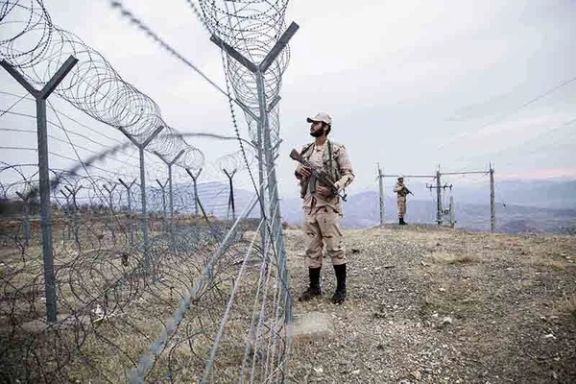
At least six people including a local Revolutionary Guards commander were killed and several others were injured in a series of attacks on Tuesday in Iran’s Sistan-Baluchestan province.

At least six people including a local Revolutionary Guards commander were killed and several others were injured in a series of attacks on Tuesday in Iran’s Sistan-Baluchestan province.
The deadly incident in the restive southeastern region was the latest in a string of attacks on security forces widely blamed on armed Sunni militants.
Unknown assailants killed an IRGC commander in the city of Bent named by state media as Parviz Kadkhodaei in an armed attack on Tuesday. The attack also claimed the lives of Yousef Shirani, head of the city council, and two conscript soldiers.
In a separate incident, two officers were killed when armed men opened fire on a police vehicle in Khash County.
Meanwhile, Haalvsh, a group monitoring rights violations in the region, reported that armed men targeted a military vehicle on the Jakigur highway in Rasak County. Shortly after, the insurgent Sunni Baluch group Jaish al-Adl claimed responsibility for the attack.
Recent attacks in Sistan and Baluchestan have intensified.
On Monday, Reza Shojaei, commander of the Sistan-Baluchestan Border Guard, announced that Mehdi Balouchi, a member of the Jakigur Border Guard unit, was killed in a clash with unidentified armed individuals, while two others were injured. The attack occurred during the transport of "food rations and support for border guards" near Pashamak village in Rasak County, according to a local news report.
On Sunday, domestic news agencies reported sporadic clashes across the province, with unknown gunmen involved in multiple shootings.
Jaish al-Adl, a group labeled a "terrorist organization" by Iran, Pakistan, and the United States, claimed responsibility for all the attacks.
The Islamic Republic News Agency (IRNA) reported the death of Amir Mohammad Amiri, an Iranian border guard in the Makki Hirmand area, in a clash with armed individuals. In another attack, Ramin Velayati, a member of the Special Forces Command in Khash County, was killed by gunmen. Gunmen also opened fire on a police station in Iranshahr, injuring at least one police officer.
The escalation follows heightened tensions in mid-January when the Revolutionary Guards launched a missile strike on Jaish al-Adl positions within Pakistan.
The incident strained relations between Iran and Pakistan, leading to retaliatory actions by Islamabad within Iranian borders. However, both nations have since declared that tensions have been resolved.
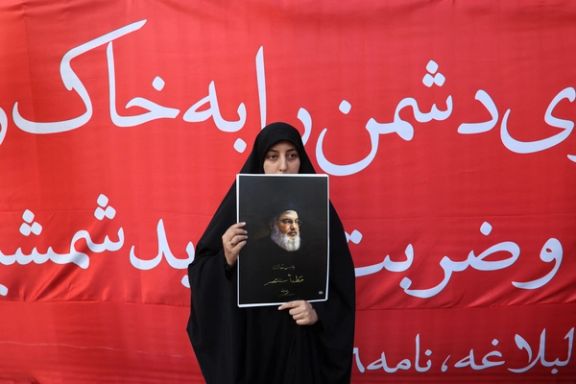
Jews in Iran are being pressured by the authorities to publicly mourn the death of Hezbollah leader Hassan Nasrallah, known for his antisemitic ideology.
Nasrallah, head of Iran's largest proxy, made multiple statements against Jews and Israelis over the years, most famously declaring that "If we searched the entire world for a person more cowardly, despicable, weak and feeble in psyche, mind, ideology and religion, we would not find anyone like the Jew. Notice, I do not say the Israeli.”
The Lebanese Shia militant leader also said in 2002 that "If they [the Jews] all gather in Israel, it will save us the trouble of going after them worldwide."
Rabbi Pini Dunner, from the Beverly Hills Synagogue which has a huge Iranian community, told Iran International that “Iran's Jewish community lives in fear of persecution if they don't align themselves with the regime's warped views."
The community, the Middle East's largest outside Israel with around 5-8,000 remaining, was compelled to issue a statement criticizing Israel and America for the killing of the Hezbollah leader.
"What choice do they have? It tells you everything you need to know about how unsafe and insecure the Jewish community feels in Iran," he added.
Tehran-born Beni Sabti, who now lives in Israel, first located the pro-Nasrallah notices on Telegram from the leadership of the Jewish communities in Iran. The Jewish community of Isfahan wrote that it “congratulates and condoles the martyrdom of Sheikh Hassan Nasrallah, the Secretary General of Hezbollah in Lebanon, who was martyred in the brutal operation of the Zionist regime.”

Sabti, a research fellow at Israel's National Institute of Security Studies, said that the Tehran Jewish community also published a similar announcement as the community in Isfahan.
The term dhimmi has been applied to Iranian Jews and Jews living in Muslim-majority nations in the Arab world to capture their servile position where they are legally required to obey Islamist supremacy.
The statement from the Isfahan Jewish community called for “severe retribution” against the actions by Israel against Hezbollah in Lebanon in the last two weeks, including the assassination of the long-time leader.
Iran's Jews numbered around 80,000 until the 1979 creation of the Islamic Republic.
The Iranian-American journalist, Karmel Melamed, an expert on Persian Jews, told Iran International "the majority of them fled Iran and now live in America or Israel”.
Melamed said ”It shouldn't surprise anyone that the mullah regime in Iran has paraded out Iran's Jews and other religious minorities from the country to supposedly mourn the death of the terrorist Nasrallah because this has been their long standing propaganda tradition to do so for the last 45 years.”
He explained that “For nearly five decades the Ayatollahs have either paid off certain Jewish leaders in Iran or used duress against Jews and other religious minorities in Iran in order to have them participate in their sham public events that promote the regime's sick radical Islamic ideology or advance their false persona in the international news media."
While Iran legally recognizes the three Abrahamic faiths, Jews, like other minority groups in the Shia state, have systematically been oppressed. “In reality, this Islamic regime in Iran has treated Jews and other non-Muslims as third class citizens with limited to no rights and created an environment of extreme hostility, imprisonment or confiscation of their properties, to the point where the vast majority of non-Muslims in Iran have fled Iran since 1979," Melamed added.
Alireza Nader, an Iranian-American expert on minorities in Iran, told Iran International that the Jews of Iran are "a small and vulnerable group ... forced to show sympathy for the regime and its allies. Otherwise they could be in great danger.”
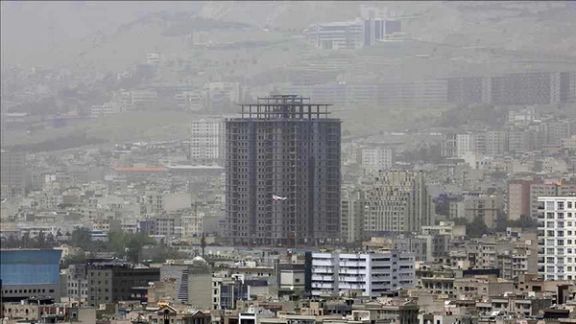
New data from the Central Bank of Iran reveals that the average price per square meter of housing in Tehran hit 885 million rials (around $1,500) last month, leaving over half of renters with little hope of ever buying a home due to low income levels.
New data from the Central Bank of Iran reveals that the average price per square meter of housing in Tehran hit 885 million rials (around $1,500), leaving over half of renters with little hope of ever buying a home due to low-income levels.
According to the Central Bank’s estimates, housing prices have increased nearly elevenfold since the start of US sanctions in 2018 and have tripled in local currency over the past three years, during the presidency of Ebrahim Raisi. During the same period the rial fell 50% against the US dollar.
Although the figures provided by the Central Bank indicate a significant rise in housing prices, a loan expert at a private Iranian bank told Iran International that the actual increase in housing prices is much higher than what the Central Bank claims.
Chichek M, identified here by a pseudonym for security reasons, further explained that due to the obligation to offer loans, particularly mortgage loans, at interest rates below inflation, banks in the country have been incurring losses.
According to the latest official reports, Iran's seven largest banks collectively have accumulated losses of 4,640 trillion rials (about $7.7 billion).
Chichek added that while the country’s inflation rate is around 45%, the interest rate for bank loans is set at approximately 23%.
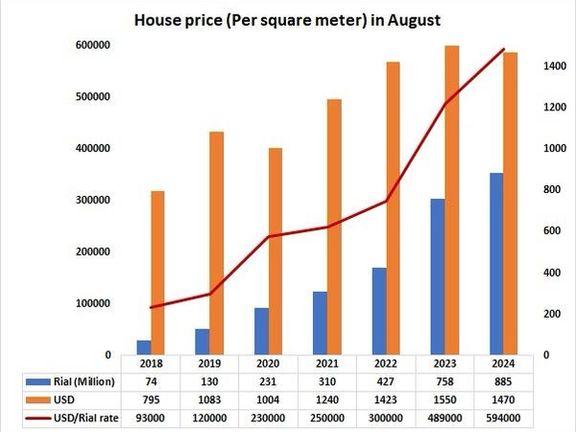
The Central Bank's statistics on housing prices also contradict figures from other governmental institutions. For instance, the Central Bank claims that the average price per square meter of housing in Tehran increased by 16.8% year-on-year in August, whereas the Statistical Center of Iran reports this figure to be 43%.
A significant portion of the soaring house prices in Iran is attributed to the devaluation of the rial against foreign currencies, particularly the US dollar. However, the Central Bank's detailed data reveals that even accounting for currency fluctuations, housing prices have nearly doubled in dollar terms.
The exchange rate of the US dollar has jumped from 40,000 rials in early 2018 to around 600,000 rials, marking a 600% increase. However, during the same period, housing prices have surged by 1,000%, based on Iranian rial.
One reason for the faster rise in housing inflation compared to the rial’s depreciation against the dollar is the government's failure to build new housing. Another factor is the rush of people’s rial-based assets into the housing market as a way to preserve their value.
For example, President Ebrahim Raisi promised to build one million housing units annually, but Mohammadreza Rezaei Kochi, the head of the Parliament’s Construction Committee, says this plan has only achieved 2% progress: “Over the past three years, only a small portion of the previous government’s unfinished projects have been completed and handed over to the public”.
Meanwhile, the ISNA news agency reported on September 22, citing new Central Bank data, that 51% of Tehran's population cannot afford to buy a home priced at 885 trillion rials per square meter.
The report adds that 51% of Tehranian households are renters, who, in addition to facing 45% inflation in rental costs, would have to wait 48 years to purchase a home.
ISNA notes that housing has become a major crisis for everyone in recent years. It describes homeownership as a dream for many Iranians, one that they may never realize in their lifetime.
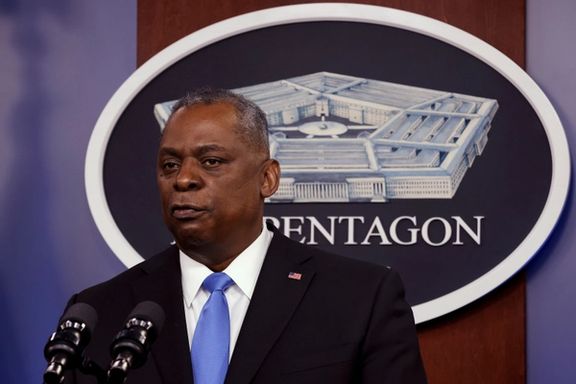
Iran could face serious ramifications if it chooses direct military action against Israel, US Secretary of Defense Lloyd Austin said on Monday after giving the green light for Israel's ground operations into south Lebanon.
During talks with Israeli Minister of Defense Yoav Gallant, Austin stressed that Washington is "well-postured to defend US personnel, partners, and allies in the face of threats from Iran and Iran-backed terrorist organizations.
“I reiterated the serious consequences for Iran in the event Iran chooses to launch a direct military attack against Israel,” the US official wrote on X.
Iran stated on Monday that it would not send forces to Lebanon or Gaza. Still, it vowed an unspecified response to Israel following massive Israeli airstrikes on Beirut on Friday, which killed Hezbollah leader Hassan Nasrallah, Iranian commander Abbas Nilforoushan, and other senior Hezbollah figures. The attack marked the largest strike on Hezbollah's stronghold in nearly a year of conflict.
Israel’s intensified strikes on Hezbollah in Lebanon and the Houthis in Yemen have raised fears that the fighting could escalate, potentially drawing in Iran and the US, Israel’s key ally.
Despite this, Iran has not openly mentioned retaliation. Last week, Axios reported that Hezbollah requested Iran's support for retaliation, but Iranian officials were hesitant, expressing reservations about joining the fight against Israel.
The IRGC announced on Monday that its decisions are grounded in “rationality, and not influenced by the sentiments of social media." The political deputy of the IRGC emphasized, "Some suggest, 'If we had retaliated for the assassination of General Soleimani and Haniyeh, certain events wouldn't have happened,' or 'If we don’t respond, the enemies will take the next step.'"
He added, "While there may be excitement for action, any operation must be approached with rationality, careful consideration, and a thorough analysis of the situation."
The conservative Iranian newspaper Jomhuri Eslami wrote on Tuesday that rejecting the theory of revenge is a precise and logical strategy, as the US aims to expand the war in the region.
The newspaper stated: "At a time when various individuals and factions, through extremist remarks, are trying to push the region toward a full-scale war, prioritizing resistance and rejecting the theory of revenge is a precise strategy."
Still, some conservative media continued to call for retaliation against both Israel and the US. Tehran’s Farhikhtegan newspaper suggested that President Joe Biden could become a "legitimate" target after leaving office, citing the US role in the Israeli assassination of "resistance leaders."
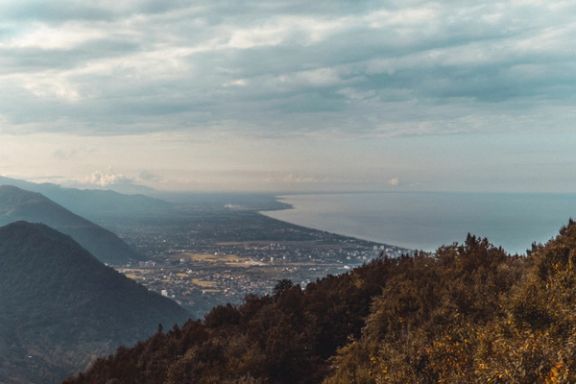
Up to a quarter of the Caspian Sea's water levels may dry up within the next 20 years, an Iranian government official has warned.
"Our shores have experienced significant retreat, raising concerns that our facilities and ports could be in jeopardy," an Iranian Environmental Protection Organization official, Omid Sedighi, told local media.
"Addressing this issue entails considerable expense, as extensive dredging is required to restore water access to the docks and ports. This poses a substantial threat," he added.
Addressing the challenges faced, Sedighi noted that the country's coastlines have "significantly receded," placing critical infrastructure, such as facilities and ports, at risk. He warned that if the current trend of declining water levels continues, it could lead to the drying up of other wetlands, render docks and ports inaccessible, and create serious issues for coastal power plants. Furthermore, he expressed concern that the situation could also jeopardize shrimp farming operations.
His remarks mirror concerns that Iranian officials have voiced for years. Last year, Iran’s Minister of Interior, Ahmad Vahidi, warned of the Caspian Sea's further decline in the coming decades, while refraining from addressing the regime’s neglect of ecological issues.
Similarly, Ali Salajegheh, head of the Iranian Department of Environment, underscored the ecological challenges posed by a one-meter reduction in the Caspian Sea's water level over the past 4-5 years, noting an average annual decline of 20 centimeters.
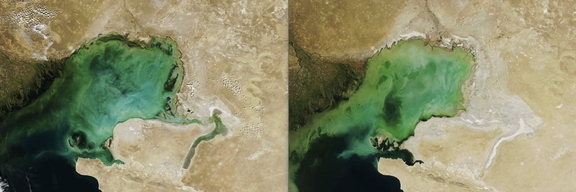
However, the predicament transcends Iran's borders. The Caspian Sea is bordered by Iran to the south, Turkmenistan to the southeast, Kazakhstan to the northeast, Russia to the northwest, and Azerbaijan to the southwest.
Scientific studies have revealed that the Caspian Sea's water levels, which have exhibited sharp fluctuations over the past century, have steadily declined since the mid-1990s.
However, since 2005, conditions have deteriorated even further. Russia's Volga River, which constitutes approximately 80 percent of the total water inflow into the Caspian Sea, has been a focal point of blame among the nations concerned with the sea's declining levels.
Earlier this month, expressing deep concern over the "catastrophic" shrinkage of the Caspian Sea, Azerbaijani President Ilham Aliyev discussed the matter with Russian President Vladimir Putin.
Last year, Kazakhstani officials declared a state of emergency in response to the recession of the shoreline, with the Environment Minister attributing the primary causes to “climate change as an exogenous factor” and the upstream “regulation” of rivers that feed into the lake, including the Volga and Ural, both originating in Russia.
According to NASA's Earth Observatory, a study utilizing several models projected that the Caspian Sea's water levels could decline by an additional 8 to 30 meters (26 to 98 feet) by 2100 due to climate change. Moreover, human activities such as water use and diversion could contribute to a further 7 meters (23 feet) of water loss. These projections underscore the significant impact of both natural and anthropogenic factors on the future of the Caspian Sea's water levels.
According to a study published in Nature, "a decline by 9–18 meters will mean that the vast northern Caspian shelf, the Turkmen shelf in the southeast, and all coastal areas in the middle and southern Caspian Sea emerge from under the sea surface. In addition, the Kara-Bogaz-Gol Bay on the eastern margin will be completely desiccated. Overall, the Caspian Sea’s surface area will shrink by 23 percent for a 9 meter and by 34 percent for an 18 meter drop of sea level." Scholar Vali Kaleji emphasizes that to address this critical issue, Caspian coastal nations must prioritize integrated, coordinated, and comprehensive policies and strategies.
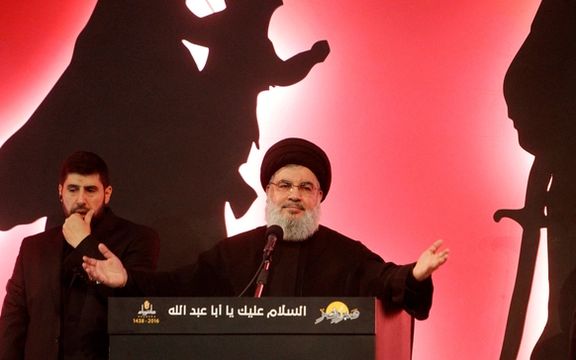
Supporters of rival factions in Iran have taken to social media to make allegations of Israeli ‘infiltration’ and espionage against each other in the wake of Israel’s recent deadly operations.
Hardliners, reformists, and others, including many in the opposition, generally agree that Israel’s recent killings of Ismail Haniyeh in Tehran and Hassan Nasrallah in Beirut could not have occurred without Israel infiltrating Hamas, Hezbollah, and Iran's security forces at the highest levels.
“It seems that Israel’s infiltration in Iran has become the weak point for both Hamas and Hezbollah. The news suggests that Iranians were involved in both incidents,” a netizen posted on X, blaming the Islamic Republic for “years of poverty and corruption” and for using the security forces to suppress the people at home. “The result has been the significant expansion of Israel’s penetration into the country’s apparatus.”
Lebanese security sources have alleged that an Iranian informant tipped off Israel about Nasrallah’s whereabouts before his assassination in Beirut on Friday.
Ultra-hardliners have concentrated their attacks on Mohammad-Javad Zarif, President Masoud Pezeshkian’s deputy for Strategic Affairs. Either openly or through veiled references using parallels from early Islamic history such as the story of Bin Hajjaj, they accuse Zarif of having assisted Israel in some way in locating and killing Nasrallah and his companions.
Nasr Bin Hajjaj is alleged to have lured Imam Hussain ibn Ali, the third Imam of the Shiites, to Kufa under the guise of friendship, only to betray him and fight against him during the Battle of Karbala in 680 AD, where Hussain was ultimately killed.
"The enemies will dominate us, one after the other, if the roots of Zarif’s thinking are not dried in this country,” another tweet that referred to Nasrallah’s killing said.
Some religious radicals have even tried to justify the intelligence failures of Iran and its allies by claiming supernatural beings must have been involved in the operations.
Hojjat ol-Eslam Mostafa Karami, a Qom seminary teacher claimed in an interview with an online television channel that Israel has been using jinni to spy on Muslim leaders because they have “tamed the jinni” and they “have a long history in this”. A video of the interview was released by some Iranian media Monday and is being widely circulating on social media.
“This level of attacks on Zarif is neither related to caring for the [Iranian] people nor the Hezbollah and Seyed Hassan Nasrallah,” reformist journalist Davoud Heshmati argued in a tweet and claimed ultra-hardliners’ are making these allegations against Zarif because their leader Saeed Jalili lost in the recent presidential elections and they are angry.
Those who accuse ultra-hardliners of having ‘infiltrators’ amongst their ranks argue that the best way for an Israeli infiltrator to hide in plain sight in the Islamic Republic is to imitate the looks and behavior of radicals who vow absolute subservience to Khamenei.
“Spies have the mark of the prayer stone on their foreheads and pretend to love the system!” argued a netizen sympathetic to the opposition, responding to accusations that opposition supporters were spying for Israel to undermine the Islamic Republic. “Since when do enemy spies pose as the official opposition?” he questioned.
The footage of a 2021 interview on CNN Turk has re-emerged on social media, in which former President Mahmoud Ahmadinejad claims that an intelligence officer appointed to investigate how Israel stole a massive corpus of Iran's nuclear documents in 2018 was an Israeli mole himself.
Ahmadinejad’s supporters who are widely circulating the video on social media implicitly blame Khamenei for Israeli infiltration because, they claim, he refused control over the intelligence ministry to Ahmadinejad more than a decade ago who wanted to purge it of moles.